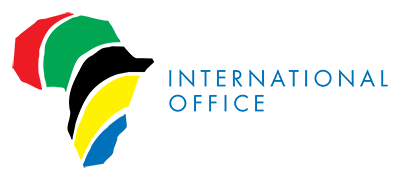Our customised programmes are bespoke programmes designed in close collaboration with a partner institution to deliver an exceptional learning experience.
The International Office works closely and collaboratively with academics and the partner institution to design and facilitate these courses.These programmes generally range from one to six weeks and are priced in terms of scope, duration, courses, number of students and the additional services required.
Ten or more participants are required for customised programmes.
Examples of customised programmes we have delivered to global universities and institutions include:
- University of Massachusetts, USA: Afropolitanism; African Media in a Global Age; The History of the HIV/AIDS Epidemic
- St. Vincent's College, USA: Criminology, Law and Society
- FOM Hochschule, Germany: Leadership and Development Economics
- FOM Hochschule, Germany: Business Psychology
- United Nations Leaders Programme: Leadership for Transformation and Resilience
- University of York, UK: Contemporary South Africa: History, Culture and Politics
- Asian Society of Film and Television (ASFT) – Asian Law College, India: International Law and Legal Framework
Themes and areas of expertise we can offer for your customised programme:
-
1. South African heritage, politics, culture, and environment
This programme explores a timeline of significant events that have uniquely shaped our context, including slavery, colonialism, apartheid and post-apartheid South Africa. Emphasis is on the consequences of political, social and economic choices on the culture, environment, health and future of South Africa’s diverse population and natural environment. Visits include iconic sites and museums which are relevant to the historical and current context of the country, including walking tours through sites of memory such as District Six and Robben Island.
Seminar topics include:
- Inequality and segregation
- Reconciliation
- Justice
- Diversity
- Biodiversity
- Social and environmental transformation
-
2. Public health: HIV and AIDS in a South African context
This programme offers an historical and present-day account of the HIV and AIDS epidemic in South Africa. Community engagement, and working with and learning from local communities, is a large component of the course. It aims to raise awareness of public health realities and challenges in responding to the occurrence of HIV and AIDS in a South African context.
Topics include:
- Moral, social, political and economic factors
- Gender and race dynamics
- Stigmatisation, misconceptions and controversial public health policy responses
- Issues of poverty, inequity and insecurity
-
3. Strategic leadership, transformation and resilience
The strategic leadership programme applies theory, uses practical examples and encourages self-reflection through diverse learning formats to enhance leadership capacity and facilitate meaningful discussion around core themes. Participants learn about self-mastery, tackle the challenges of transformation and develop personal resilience in leadership.
Core themes and issues of relevance based on the priorities of the UN Sustainable Development Goals:
- Climate change
- Ethics and accountability
- Human rights
- Technology and communication
-
4. Power in society
This course will inform students about power in society and issues of social justice – examining gender, race, class and sexuality. A main focus is an understanding of how the construction of power and privilege significantly impacts people’s life opportunities.
Themes include:
- Diversity literacy – race, gender, sexuality
- Intercultural competencies
- Teamwork in diverse groups
- Practical skills in mediation and interpersonal conflict
- Management skills
-
5. African media in a global age
This course examines the current changes occurring in Africa’s media landscape and explores the role of old and new media in transforming and communicating politics, development and social change on the continent. The first part of the course examines the history of African media, the governance and regulation of media and the role of media in elections and nationalism. The second part of the course situates African media within a global context and examines contesting media narratives of Africa, the impact of changing geopolitical relations on media landscapes and the influence of mobile phones on social relations in everyday contexts.
-
6. The history of the HIV/AIDS pandemic
This programme examines the history of HIV and its treatment from the 1980s to the present, situating its emergence as a global epidemic along a continuum of health, disease and healing. It traces the emergence of modern theories of race, science and gender, and their application within medicine and public health in the 19th and 20th centuries. In combining research methods and findings from medicine, health and social sciences and the humanities, it introduces students to using multidisciplinary sources to investigate complex challenges that span the health and social sciences. It concludes with a practical introduction to interdisciplinary research on the health and human rights of HIV-positive adolescents.
-
7. The art of memoir
This programme offers a theoretical and creative exploration of the practice of memoir. Its aim is to explore the features of the genre, to introduce students to a range of quality writing, both global and local, and to develop their literary writing skills. Students will gain a global understanding of significant contemporary memoir and its opportunities for personal and interpersonal enrichment. They will also gain a closer appreciation of the South African experience as expressed through memoir and develop individual writing skills focusing on the practical expression of experience within the memoir genre.
-
8. Service-learning
Service-learning projects are developed by connecting student learning objectives to an established community need with a community partner. As such, the resulting partnership is beneficial for all parties. The project activities and deliverables can vary widely as service learning can take on many forms. Examples of service-learning partners: Various Schools & NGO’s in the Western Cape.
-
9. Additional customised programmes envisaged
- The South African Perspective on Teaching for Climate Change and Sustainability
- Race, Gender, Class and Identity in the making of modern day South Africa
- International Relations
